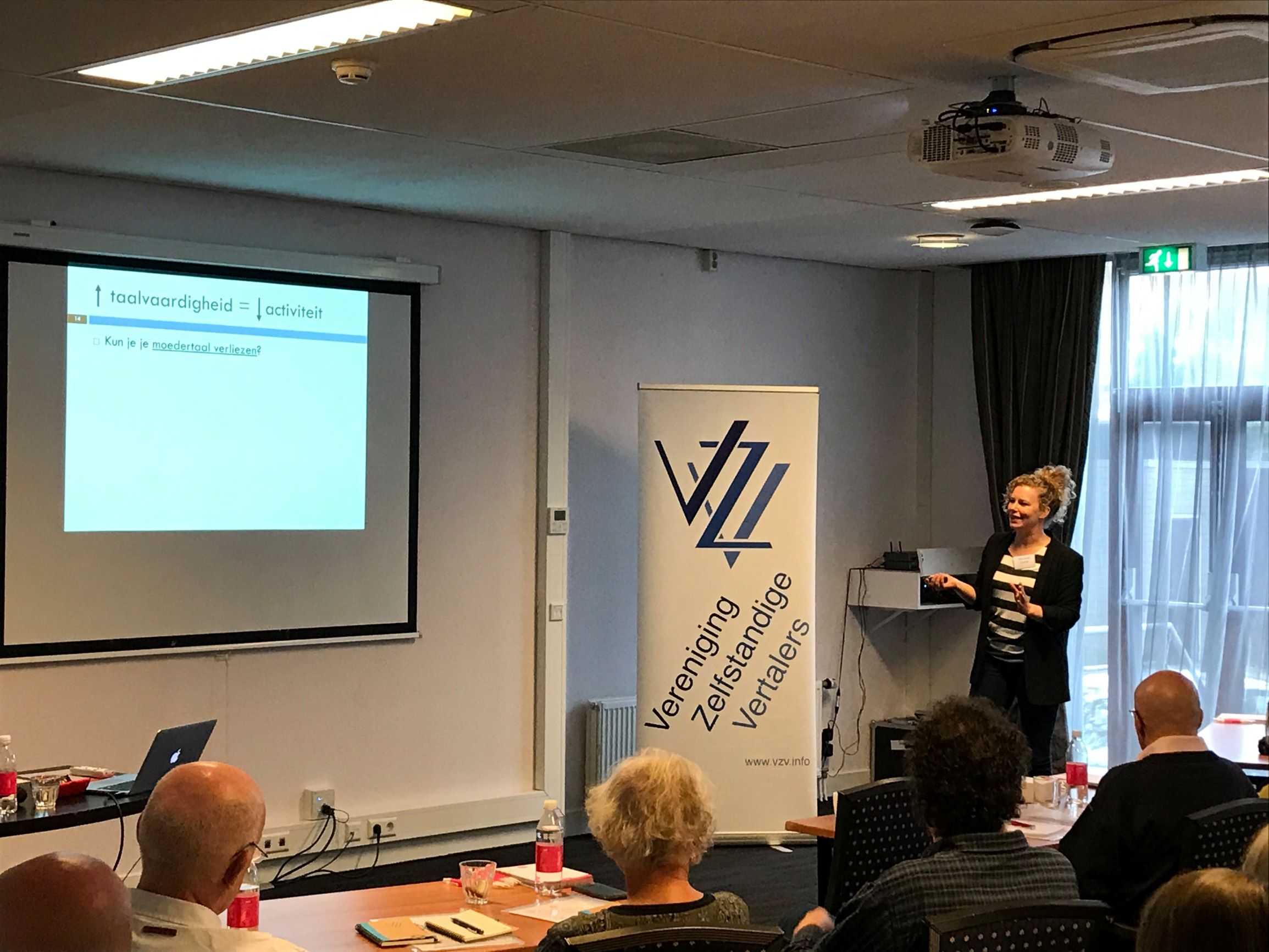
(Photo by Karin Krikkink)
This year’s theme of the symposium organised by the VZV (Vereniging Zelfstandige Vertalers) was: Mother tongue: a work in progress. The fact that this title did not end with a question mark already anticipated the final conclusion of the afternoon: Yes, it is a work in progress! You have to keep working on it, using it, immersing yourself in it, to make sure that you can continue to deliver quality translations. But back to the programme. We had an interesting start with Hanneke Loerts, lecturer at the Department of Minorities & Multilingualism at the Rijksuniversiteit Groningen, who talked about how our brain learns, processes and loses language. She took us along on the journey of how we learn language, from baby to young child to adult, showing how we grow and solidify connections between the neurons to learn and remember words. It was fun to see what happens in the brain with people who speak multiple languages: the brain has to work a lot harder to identify words in other languages than the one you learned as a child, and you can see that on the scans. The conclusion of research carried out is also that people who keep their brain active keep it healthier for longer. That is good news for multilinguals like us, but also for people who continue to learn and work with their brain in other areas, such as making Bob Ross paintings!
From the brain we moved on to the actual translation product on paper, and how language and our language skills have changed with time. Should we be worried about this development? And what can we do to safeguard the quality of translations in the future? Fedde van Santen, lecturer at ITV Hogeschool, talked about his mission to find the ultimate method to ensure that his students master their languages at the highest level of competence. After all, he argues, to be able to produce texts at a level that people with low literacy skills can read (B1), you really need to master a language at C2 level: the legibility of a text does not lie in short words, but in a logical construction of that text. And that is one of the major problems that Van Santen sees in the work of his students these days. One of the causes, according to him is that they hardly read anymore (well, they read, but mostly short texts on devices, not novels on paper), and as a result, they find it harder to make translations that flow, that have a logical structure, that use the right register, etc.
The panel discussion, also including Tia Nutters, language coordinator at the Rijksuniversiteit Groningen Language Centre, and Tony Parr, co-founder of Teamwork and well-known among seasoned language professionals, focused on these issues and also on the question posed at the start: how can we ensure we keep our mother tongue at a high level? And what actually is our mother tongue? We had a lively discussion, with native speakers of various languages confirming that to keep up with developments in your mother tongue, just translating and reading is not enough: you have to actually speak the language on a daily basis and immerse yourself in the culture, to make sure you don’t end up using the version of the language that was prevalent when you left the country twenty or more years ago. Indeed: a work in progress!
